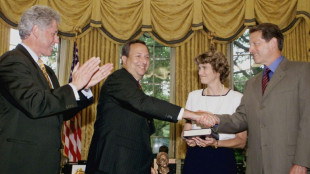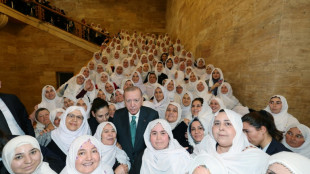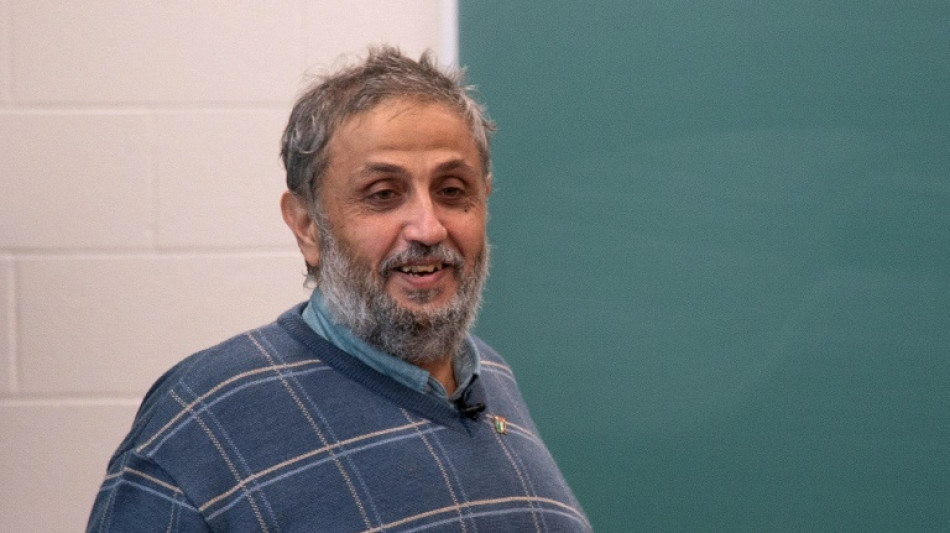
-
 Bayern and Kane gambling with house money as Gladbach come to town
Bayern and Kane gambling with house money as Gladbach come to town
-
Turkey invests in foreign legion to deliver LA Olympics gold

-
 Galthie's France blessed with unprecedented talent: Saint-Andre
Galthie's France blessed with unprecedented talent: Saint-Andre
-
Voice coach to the stars says Aussie actors nail tricky accents

-
 Rahm rejection of DP World Tour deal 'a shame' - McIlroy
Rahm rejection of DP World Tour deal 'a shame' - McIlroy
-
Israel keeps up Lebanon strikes as ground forces advance

-
 China prioritises energy and diplomacy over Iran support
China prioritises energy and diplomacy over Iran support
-
Canada PM Carney says can't rule out military participation in Iran war

-
 Verstappen says new Red Bull car gave him 'goosebumps'
Verstappen says new Red Bull car gave him 'goosebumps'
-
Swiss to vote on creating giant 'climate fund'

-
 Google to open German centre for 'AI development'
Google to open German centre for 'AI development'
-
Winter Paralympics to start with icy blast as Ukraine lead ceremony boycott

-
 Sci-fi without AI: Oscar nominated 'Arco' director prefers human touch
Sci-fi without AI: Oscar nominated 'Arco' director prefers human touch
-
Ex-guerrillas battle low support in Colombia election

-
 'She's coming back': Djokovic predicts Serena return
'She's coming back': Djokovic predicts Serena return
-
Hamilton vows 'no holding back' in his 20th Formula One season

-
 Two-thirds of Cuba, including Havana, hit by blackout
Two-thirds of Cuba, including Havana, hit by blackout
-
US sinks Iranian warship off Sri Lanka as war spreads

-
 After oil, US moves to secure access to Venezuelan minerals
After oil, US moves to secure access to Venezuelan minerals
-
Arteta hits back at Brighton criticism after Arsenal boost title bid

-
 Carrick says 'defeat hurts' after first loss as Man Utd boss
Carrick says 'defeat hurts' after first loss as Man Utd boss
-
Ecuador expels Cuba envoy, rest of mission

-
 Arsenal stretch lead at top of Premier League as Man City falter
Arsenal stretch lead at top of Premier League as Man City falter
-
Title race not over vows Guardiola after Man City held by Forest

-
 Rosenior hails 'world class' Joao Pedro after hat-trick crushes Villa
Rosenior hails 'world class' Joao Pedro after hat-trick crushes Villa
-
Brazil ratifies EU-Mercosur trade deal

-
 Real Sociedad edge rivals Athletic to reach Copa del Rey final
Real Sociedad edge rivals Athletic to reach Copa del Rey final
-
Chelsea boost top four push as Joao Pedro treble routs Villa

-
 Leverkusen sink Hamburg to keep in touch with top four
Leverkusen sink Hamburg to keep in touch with top four
-
Love match: WTA No. 1 Sabalenka announces engagement

-
 Man City falter as Premier League leaders Arsenal go seven points clear
Man City falter as Premier League leaders Arsenal go seven points clear
-
Man City title bid rocked by Forest draw

-
 Defending champ Draper ready to ramp up return at Indian Wells
Defending champ Draper ready to ramp up return at Indian Wells
-
Arsenal extend lead in title race after Saka sinks Brighton

-
 US, European stocks rise as oil prices steady; Asian indexes tumble
US, European stocks rise as oil prices steady; Asian indexes tumble
-
Trump rates Iran war as '15 out of 10'
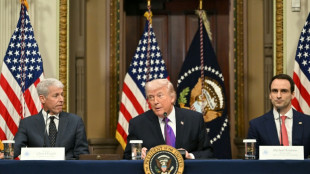
-
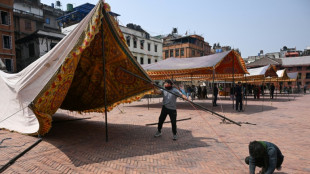 Nepal votes in key post-uprising polls
Nepal votes in key post-uprising polls
-
US Fed warns 'economic uncertainty' weighing on consumers

-
 Florida family sues Google after AI chatbot allegedly coached suicide
Florida family sues Google after AI chatbot allegedly coached suicide
-
Alcaraz unbeaten run under threat from Sinner, Djokovic at Indian Wells

-
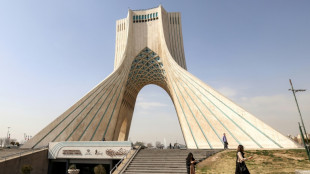 Iran's supreme leader gone, but opposition still at war with itself
Iran's supreme leader gone, but opposition still at war with itself
-
Mideast war rekindles European fears over soaring gas prices
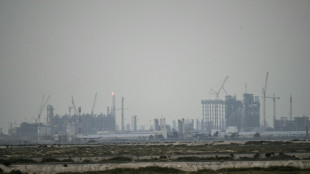
-
 'Miracle to walk' says golfer after lift shaft fall
'Miracle to walk' says golfer after lift shaft fall
-
'Nothing is working': Gulf travel turmoil hits Berlin tourism fair
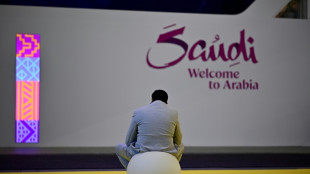
-
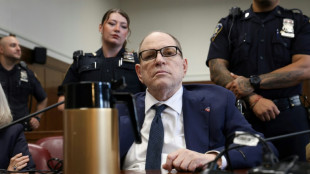 Harvey Weinstein rape retrial to start April 14: publicist
Harvey Weinstein rape retrial to start April 14: publicist
-
No choke but 'walloping', South Africa coach says of T20 flop
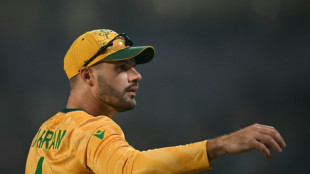
-
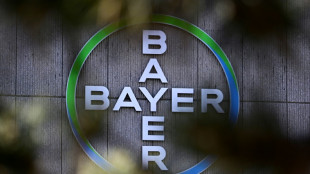 Bayer gets preliminary approval for weedkiller class settlement
Bayer gets preliminary approval for weedkiller class settlement
-
Russia to free two Hungarian-Ukrainian POWs, Putin says
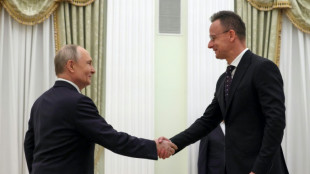
-
 Michelangelo's works hidden in 'secret room', researcher says
Michelangelo's works hidden in 'secret room', researcher says
-
Adidas shares slump on outlook, Mideast war casts shadow


From Canada, professor tries to keep Gaza university 'alive'
University professor Ahmed Abu Shaban often gets up at 3:00 am in Toronto to remotely teach his students in Gaza -- motivated by loyalty to his trapped pupils, and a deep sense of guilt.
Shaban, an academic who fled Gaza days after October 7, 2023, said he has an obligation to students in the Palestinian Territory desperate to study in defiance of unimaginable challenges.
He also said he has a responsibility to help preserve higher education in Gaza, while the world is focused on the humanitarian emergency.
But the 50-year-old conceded that guilt also weighs on him.
"Guilty for leaving Gaza," he told AFP. "Like we just abandoned our country, our people, our institution."
Shaban is still the dean of the Faculty of Agriculture and Veterinary Medicine at Al-Azhar University, which was destroyed -- along with most university buildings -- by Israeli air strikes.
Shaban crossed to Egypt shortly after the war began, anticipating Israel's response to the Hamas attack would be "massive," he said.
Canadian contacts arranged a posting at Toronto's York University, where he is a visiting professor in the Faculty of Environmental and Urban Change.
In a campus office with empty book shelves and mostly bare walls, Shaban explained that he felt compelled to help make Al-Azhar operational in some form.
He wanted "to give the very clear message for the whole world: Yes, they just destroyed our infrastructure. Yes, they destroyed our buildings... but we are still alive and we will just continue," he said.
"This is actually a responsibility for our students, for our nation, and for our independent state in the future."
- Hunger to study -
Shaban, who is on Al-Azhar's board, said its pre-war enrolment was 14,000 students.
When registration opened for online courses earlier this year he expected 1,000 students to join.
"We got 10,000," he said.
"It was really, for me, shocking because, just imagine: you live in a tent, you have no electricity, you have no internet. You have nothing at all.
"But you still have the hope to go to sign up for online courses and to walk for five (kilometres) to get internet connection and even to communicate, to sit and study. And sometimes you risk your life even while you are searching for internet."
Shaban conceded his personal schedule is "stressful," as he tries to work in two time zones.
One day last month, he was up at 3:00 am to join a workshop on Gaza's food system, before an Al-Azhar board meeting at 6:00 am. He then headed to his Toronto office to prepare a guest lecture on the Gaza war.
On evenings and weekends he records and uploads lectures for his Palestinian students.
Shaban said the study program is flexible, given the challenges of internet access. Students watch lectures and complete assigments when they can get online.
- Star student killed -
He said students in Gaza can be "angry" and "pushy": they want to know, for example, when they will able to do lab work, even though all the labs have been destroyed.
Shaban said he understands their frustrations.
"Sometimes you feel the students are looking at us like we can do things that actually are not doable," he said. "I have to be responsive in a gentle way."
As agitated student messages pour in, Shaban said he reminds himself that he is living comfortably in a city with electricity and grocery stores stocked with food.
"(I) try just to provide them with whatever support that I can. There are many things that I cannot do," he said.
Students who have died are always front of mind.
He recalled five engineering students killed as they gathered by an internet source to work on an assignment.
Shaban said he will never forget his "star student" Bilal al Aish, who, days before the war started, was trying to decide whether to pursue a scholarship in Germany or the American Fulbright.
"I saw the hope in his eyes, not only for his own future, but also the future of our institutions."
Shaban said Aish was killed by an Israeli strike early in the war.
"I got the feeling they are killing the future," the professor said. "That was really painful for me."
L.Meier--VB


